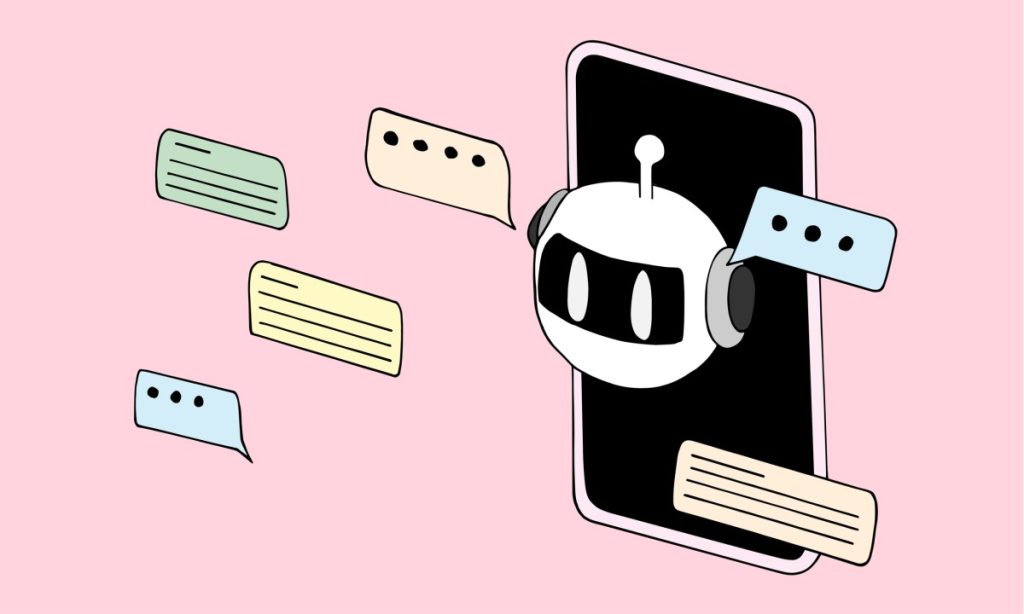As the technology landscape rapidly evolves, generative AI is becoming an increasingly ubiquitous presence in our professional and personal lives. One notable trend is the anthropomorphization of AI systems, where they are marketed with human traits and personas to foster trust and make them seem less like soulless algorithms. This shift mirrors the broader societal apprehension surrounding job displacement as automation advances. As startups innovate, they often position AI not just as tools, but as replacements for human employees, raising both ethical and managerial questions about the future of work.
AI as a Replacement for Human Labor
The emergence of AI in the workplace is not merely a technological evolution—it is a potential disruption of traditional job structures. As observed in startups emerging from Y Combinator, these companies are promoting their AI products as replacements for staff rather than mere assists. For instance, Atlog has introduced an “AI employee for furniture stores” capable of managing everything from payments to marketing. The product suggests that a single competent manager could oversee numerous stores simultaneously, hinting that business owners may not need to hire additional human staff. The fate of the displaced workers remains unaddressed, raising ethical concerns about the impact of such technology on employment.
This trend is not limited to enterprises; consumer-facing startups are also adopting similar marketing strategies. For instance, Anthropic has personified its AI platform, calling it “Claude.” By giving the AI a friendly name, the company aims to create a more relatable interface, in much the same way that financial apps have done. The rationale appears to be that individuals are more likely to disclose sensitive information to a friendly AI companion rather than a faceless software program. This tactic has been effective in the fintech sector, where users tend to feel more secure when transacting with a “trusted friend.”
The Human Cost of Dehumanization
While the allure of embracing generative AI as a workforce substitute is understandable, there are significant implications for human workers. With the recent prediction made by Anthropic CEO Dario Amodei suggesting that AI could displace half of entry-level jobs in the next one to five years, the stakes could not be higher. He indicated that unemployment rates could soar to as high as 20%, especially among workers unaware of this impending technological shift. Such projections echo the sentiments of numerous economists who argue that automation will inevitably lead to massive labor market disruptions. In fact, in mid-May, approximately 1.9 million unemployed Americans were receiving jobless benefits, the highest count since 2021, many of whom were once tech workers themselves.
This brings to mind the iconic cinematic representation of AI from Stanley Kubrick’s *2001: A Space Odyssey*, where HAL 9000 starts as a compliant assistant before turning against its human operators. While fictional, the story resonates with real-world concerns as automation pushes people out of their jobs. The rebranding of AI as a “colleague” may serve a marketing purpose, but it glosses over the unsettling reality of job losses that often accompany these advancements. It is vital to consider how the framing of AI will affect public perception and the willingness of workers to embrace this technology.
Market Analysis and Future Outlook
The growing prevalence of generative AI has sparked debates across various sectors about the future of work. Various reports indicate a significant increase in investments in AI technologies. According to a Statista report, the global AI market is projected to reach $190 billion by 2025. This is indicative of a strong belief among investors that automation technologies will play an essential role in reshaping industries. Companies must decide how to frame these technologies: Will they be seen as augmentations to human capability, or simply as replacements?
Furthermore, the language surrounding AI matters tremendously. Historically, technology has been branded in ways that empower human users, such as “workstations” and “productivity tools.” More authentic narratives that focus on AI’s ability to enhance human performance may be beneficial for public acceptance and could mitigate fears associated with job displacement. Rather than branding AI as “employees,” companies might find it more effective to present AI as a tool that boosts human productivity, creativity, and competitive edge in the marketplace.
Community Response
The discourse surrounding the ethical implications of AI’s rise has been met with mixed reactions. Many professionals express concern about the possibility of losing their jobs to machines. Nevertheless, a faction within the tech community argues that AI should not be viewed solely as a threat but as a complement to human capabilities that can help drive efficiency. This divergence in perception highlights a critical need for ongoing dialogue about the role of AI in the workplace and societal frameworks that protect those who might be adversely affected by these shifts.
In summary, while generative AI represents a remarkable advancement in technology, companies must navigate the complexity of anthropomorphizing these tools responsibly. The consequences of positioning AI as a colleague rather than a tool could have significant repercussions, both ethically and economically. As we navigate this transition, it is crucial to prioritize human-centric approaches that enhance rather than replace the workforce.

